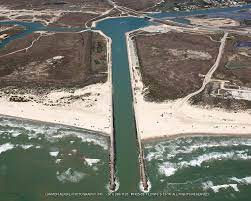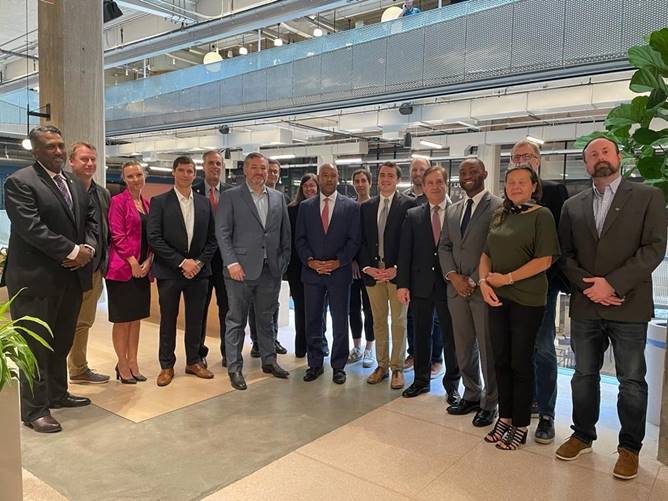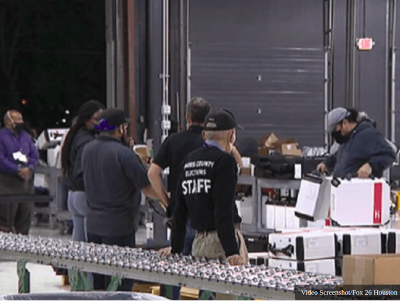A Step in the Right Direction for Texas
 A couple weeks ago, the House passed H.R. 4667, the Disaster Recovery Supplemental bill, which will provide $81 billion in new disaster recovery funds to provide for relief for Hurricane Harvey and other natural disasters, including crucial flood mitigation projects. The Texas and Florida congressional delegations joined forces to significantly increase the original $44 billion funding request from the Office of Management and Budget.
A couple weeks ago, the House passed H.R. 4667, the Disaster Recovery Supplemental bill, which will provide $81 billion in new disaster recovery funds to provide for relief for Hurricane Harvey and other natural disasters, including crucial flood mitigation projects. The Texas and Florida congressional delegations joined forces to significantly increase the original $44 billion funding request from the Office of Management and Budget.
This is a tremendous step in the right direction as we continue to rebuild, recover and press ahead toward a stronger, more resilient Texas.
As I requested, this bill fully funds all federally authorized flood control projects in Harris County and in all other Texas disaster area counties.This means Brays Bayou can be finished with front loaded funding. I also won passage of language prioritizing Army Corps funding to counties like Harris that have suffered repeated floods in recent years. In turn, this will help us get a third reservoir built to keep water out of Addicks and Barker Reservoirs.
Additionally, I won approval of language to help compensate property owners who were flooded when the Corps opened the gates on Addicks and Barker Reservoirs. Hurricane Harvey caused the largest housing disaster in American history, so we will undoubtedly need more Community Development Block Grants-Disaster Recovery housing grant dollars in the future, but, again, this bill is a giant step in the right direction.
I am grateful to House Appropriations Committee Chairman Frelinghuysen for his leadership and partnership to make the changes we needed to the bill to ensure that the good people of Texas, Florida, Puerto Rico, and the U.S. Virgin Islands are provided the resources they need.
Next, the bill will go to the Senate. I look forward to working with the Senate on this vital legislation so that all affected by this year’s storms can have more peace of mind and a brighter 2018.
Important Bill Highlights
Total: $81 billion in emergency spending for programs and activities to respond to recent hurricanes, wildfires, and other designated disasters.
In addition to funding requests, I also pushed for a legislative fix that would allow those who took out SBA loans to repair their homes to be eligible for possible HUD grant funding later. Under current law, this is considered a duplication of benefits and is prohibited. The House passed bill would allow the Governor to request a waiver so that individuals can use HUD funding to repay their SBA loans.
Another important legislative change in the House passed disaster supplemental would allow religious institutions to be eligible for FEMA public assistance following a disaster. This will help our churches and synagogues impacted by Hurricane Harvey to receive essential funds to help them rebuild.
This bill includes funding for:
Federal Emergency Management Agency (FEMA): $27.6 billion for FEMA for disaster response and recovery efforts. This includes:
- Disaster Relief Fund (DRF) funding for response and recovery efforts in all disaster affected areas;
- A provision that allows the transfer of up to $4 billion to the Disaster Assistance Direct Loan Program Account for Community Disaster Loans (CDL);
- A provision providing up to 90% federal cost share for disasters declared in 2017 for wildfires; and
- $60 million to ensure FEMA’s readiness for future disasters.
Community Development Block Grants-Disaster Recovery (CDBG-DR): $26.1 billion for CDBG-DR for housing, business, infrastructure, and mitigation needs for communities devastated by disasters in 2017 and disasters dating back to 2011. This includes:
- $13.6 billion in grants to states, tribes, and territories for recovery efforts. This is a block grant program for disaster-affected communities with significant flexibility to address local needs; and
- $12.5 billion set-aside for mitigation projects to help communities protect against future natural disasters, and to protect the taxpayer from recurring costs of rebuilding after storms.
Army Corps of Engineers - $12.1 billion for the Corps of Engineers for repairs needed due to natural disasters, and to expedite studies and projects to reduce damages in future disasters in areas affected by recent hurricanes. This includes:
- $10.5 billion for repairs to ongoing construction projects, and to expedite construction projects that will help mitigate future disaster damage;
- The construction funding will be used to expedite construction of projects for flood and storm damage reduction in areas affected by Hurricanes Harvey, Irma, or Maria. All authorized projects in Harris County, such as Hunting Bayou, White Oak Bayou, and Clear Creek are eligible for this funding.
- The bill also directs the Secretary to give priority to areas that suffered the most damage in 2017, and have had multiple disaster declarations in recent years.
- The completion of ongoing projects, such as project Brays, would be at full Federal expense.
- Construction funds in this heading would be allowed based on the investigations undertaken with funds provided in this bill. This will allow us to undertake studies for potential new projects such the 3rd reservoir, and have the funding available to begin construction.
- $370 million to repair damages along the Mississippi River and its tributaries;
- $608 million for Operation and Maintenance to repair damages, such as dredging of navigation channels;
- This funding will allow for vital dredging of our federal navigation channels like the Port of Houston, which accumulated vast amounts of silt following Hurricane Harvey.
- $537 million for Flood Control and Coastal Emergencies to repair damages; and
- $75 million to expedite studies to help mitigate future disaster damage.
- The bill authorizes two additional studies to assess regional flood and storm risks
- Another six feasibility studies are authorized for projects that would reduce flood and storm risks. The bill also directs the Secretary to give priority to areas that suffered the most damage in 2017, and have had multiple disaster declarations in recent years.
Education: $2.9 billion for restarting operations in schools in affected areas, including school rebuilding and refurbishment and replacement of educational material.
This funding will also provide support to states and localities that accommodate displaced students from K-12, college and technical schools from affected areas, including disabled and homeless students. This funding can be used for both public and private schools.
Small Business Disaster Loans: $1.6 billion for the Small Business Administration’s (SBA) disaster loan program. This will allow SBA to make up to $12.2 billion in disaster loans to small businesses and homeowners in all affected areas for recovery and rebuilding.
Defense Facilities - $1.5 billion to repair Army, Navy, Marine Corps, Air Force, Reserve, National Guard, Coast Guard, and medical military facilities, and to repair or replace equipment damaged by the hurricanes in all affected areas.
Federal Transportation Emergency Relief: $1.4 billion to address all current damages to federal highways caused by designated disasters. These funds are provided directly to states and localities for repairs. The bill also includes $269 million to help communities restore hurricane-damaged mass transit systems.
Full legislative text of H.R. 4667 can be found here.
If you’d like to weigh in on this issue or another issue I’m working on, please visit my site here to stay updated on how I’m working for you in Congress.
It is an honor and privilege to represent you and Texas in the United States House.








